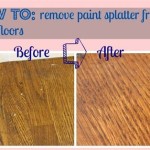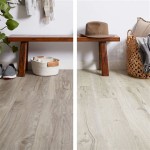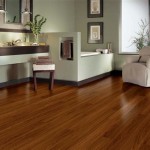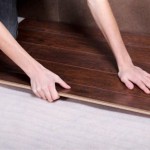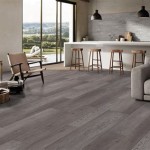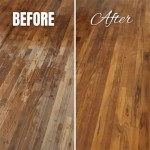Engineered Wood Flooring Versus Hardwood: A Comprehensive Comparison
Choosing the right flooring for your home is a significant decision, impacting both aesthetics and functionality. Two popular options, hardwood and engineered wood flooring, offer distinct advantages and disadvantages. This article will delve into the key differences between these flooring types, examining their construction, benefits, and drawbacks to aid in making an informed choice.
Construction and Composition
Understanding the construction of each flooring type is crucial to appreciating their respective strengths. Hardwood flooring is crafted from solid pieces of wood, typically 3/4 inch thick. The surface layer consists of a single, durable wood species, while the underside may include a tongue-and-groove design for joining planks. Engineered wood flooring, on the other hand, features a multi-layered construction. A thin veneer of hardwood, typically 1/16 to 3/16 inch thick, is bonded to a core of plywood or other engineered wood products. This layered structure provides stability and moisture resistance, making engineered wood flooring more adaptable to various climates and environments.
Durability and Longevity
While both hardwood and engineered wood flooring offer durability, their performance in this regard varies. Hardwood flooring, thanks to its solid wood construction, exhibits excellent durability. It can withstand heavy foot traffic and scratches, offering a long lifespan with proper care. However, hardwood is susceptible to moisture damage and expansion, potentially leading to warping or cupping. Engineered wood flooring, due to its layered structure, is less prone to water damage and dimensional changes. The core layer provides stability and moisture resistance, making it a more suitable choice for areas susceptible to humidity or moisture fluctuations. Although engineered wood flooring can be refinished multiple times, the number of refinishes is limited by the thickness of the veneer layer. Ultimately, the longevity of both flooring types depends on factors such as the quality of wood used, installation techniques, and proper maintenance.
Appearance and Aesthetics
Both hardwood and engineered wood flooring provide an array of styles, colors, and finishes to complement diverse design aesthetics. Hardwood flooring offers natural beauty, showcasing unique grain patterns and variations in color. It can add warmth and character to a space. Engineered wood flooring also offers a wide range of wood species, colors, and finishes, allowing for customization and matching with various design themes. However, the thinner veneer layer in engineered wood flooring may exhibit less variation in grain patterns compared to solid hardwood. Ultimately, the choice depends on personal preferences and the desired aesthetic for the space.
Installation and Cost
Installation costs for both hardwood and engineered wood flooring vary depending on factors such as labor costs, the complexity of the project, and the chosen wood species. Hardwood flooring requires more labor-intensive installation, often involving nailing or gluing planks to a subfloor. Engineered wood flooring, with its click-lock or glue-down installation methods, can be installed more quickly and with less specialized labor. However, the cost of engineered wood flooring may be slightly higher than solid hardwood, particularly with higher-quality veneer layers.
Sustainability and Environmental Impact
The environmental impact of hardwood and engineered wood flooring is a significant consideration for eco-conscious homeowners. Hardwood flooring comes from sustainably managed forests, with certified sources ensuring responsible harvesting practices. However, the transportation and processing of solid wood contribute to carbon emissions. Engineered wood flooring utilizes a more efficient use of wood resources, minimizing the need for virgin timber. The core layers often consist of recycled wood products, further reducing the environmental footprint. However, the adhesives used in engineered wood flooring can contain volatile organic compounds (VOCs), which can impact indoor air quality. Responsible sourcing and choosing low-VOC adhesives can mitigate this concern.
Specific Considerations for Each Type
Beyond the general comparison, individual needs and preferences play a significant role in the decision process. If moisture resistance and stability are paramount, engineered wood flooring is generally a better choice. However, if a timeless aesthetic and the ability to refinish multiple times are priorities, hardwood flooring may be more suitable. It's crucial to consider the specific location, environmental conditions, and desired aesthetic when making a final decision.
Choosing the Right Flooring
Ultimately, the choice between hardwood and engineered wood flooring depends on a multitude of factors, including budget, aesthetic preferences, durability requirements, and environmental considerations. Thorough research, consultation with flooring professionals, and careful consideration of individual needs are essential to make an informed choice that aligns with both functional and aesthetic goals.

Solid Vs Engineered Hardwood Which Is Better

Engineered Wood Vs Solid Which Is Better Flooring

Engineered Wood Flooring Vs Solid Hardwood

Engineered Vs Solid Wood Flooring Main Differences Esb

Hardwood Vs Engineered Wood Flooring Which Is Better Bessemeter

Solid Vs Engineered Hardwood Which Is Better

Solid Vs Engineered Quality Hardwoods Superior Design Palo Duro

Blog Engineered Vs Hardwood San Marcos Tx Quality Floors More

Solid Vs Engineered Hardwood Flooring Olde Wood Ltd

Solid Hardwood Vs Engineered Wood Flooring Green Arch Construction
See Also
